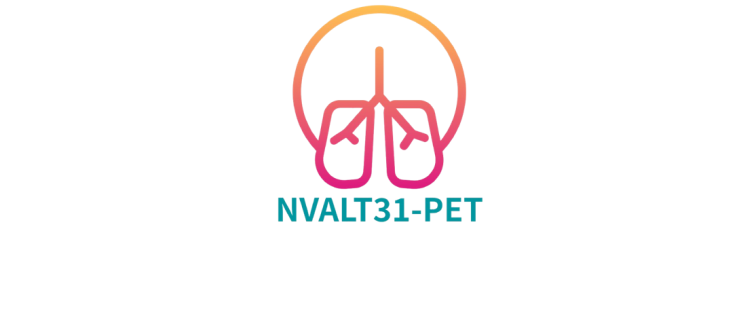In the Netherlands, follow-up care for lung cancer patients consists of CT scans of the lungs. However, a CT scan only detects recurrence or metastases in the chest area, while there is also a significant risk of distant metastases elsewhere in the body. In addition, after radiotherapy, the interpretation of changes on a CT scan is notably difficult. As a result, new metastases or local recurrence are often detected at a late stage, limiting treatment options. In recent years, treatment options for patients with only a few metastases have significantly increased. Examples include: highly targeted radiation therapy, immunotherapy, or surgery, which improve the chances of longer survival with a good health-related quality of life. However, these treatments may only prolong overall survival if the metastases or recurrence are detected in time. The NVALT31 -PET study aims to investigate whether PET/CT scans can improve early detection. Specifically, this study compares the added value of 18F FDG PET/CT scans during three year follow-up on survival and cost-effectiveness with the current follow-up method of using only a CT scan.
The study consists of two groups:
- The control group. Patients in this group receive CT scans according to current guidelines, as is standard care.
- The intervention group. In addition to the usual CT scans, patients in this group receive 5 PET/CT scans over a course of three-year follow-up.
Participants are randomly assigned to one of these groups. Patients in both groups are asked to complete questionnaires to measure health-related quality of life, distress, fear of cancer recurrence and medical consumption and productivity costs. These questionnaires are sent before each scan appointment.
Optional additional components for the intervention group include:
- An interview evaluating the potential inclusion of PET/CT as a standard follow-up scan, and its effect on distress.
- Blood tests to explore whether ctDNA is a better predictor of metastases than a PET/CT scan.
We expect that early detection of tumor recurrence may prolong survival and health-related quality of life and thereby lower the disease burden. In the future, this research may offer significant insights into optimizing follow-up care for lung cancer patients. Concurrently, immediately after the study, Zorginstituut Nederland will decide whether PET/CT scans during follow-up will be reimbursed.

Left: Annemarie Becker, right: Iris Walraven (Principal Investigators)

Left: Cindy Verberkt, right: Nicole Billingy (Coordinating Investigators)
Publication
- Study Details | The Beneficial Value of PET/CT in the Follow-up of Stage III Non-small Cell Lung Cancer Patients | ClinicalTrials.gov
- Veelbelovende zorg - 18F FDG PET/CT scans bij volwassen patiënten met stadium III niet-kleincellig longcarcinoom | Werkagenda | Zorginstituut Nederland
- NVALT31-PET STUDIE (Stadium III, Niet-kleincellige longkanker) | Kanker.nl
People involved
- Dr. I. Walraven (Project Leader)
Radboudumc - Dr. A. Becker-Commissaris (Project Leader)
Amsterdam UMC - Dr. C.A. Verberkt (Coordinating Investigator)
Radboudumc - MSc. N.E. Billingy (Coordinating Investigator)
Radboudumc/Amsterdam UMC - Dr. I. Bahce
Amsterdam UMC - Prof. Dr. M. van den Heuvel
Radboudumc - Prof. Dr. S. Senan
Amsterdam UMC - Prof. Dr. E.F.I. Comans
Amsterdam UMC - Dr. E. Aarntzen
Radboudumc - Dr. W. Kievit
Radboudumc - Dr. S. Teerenstra
Radboudumc - Dr. ir. C. Jacobs
Radboudumc
Grants
Zorginstituut Nederland
This article was written for Cancer Center Amsterdam by Dr. Nicole Billingy.

